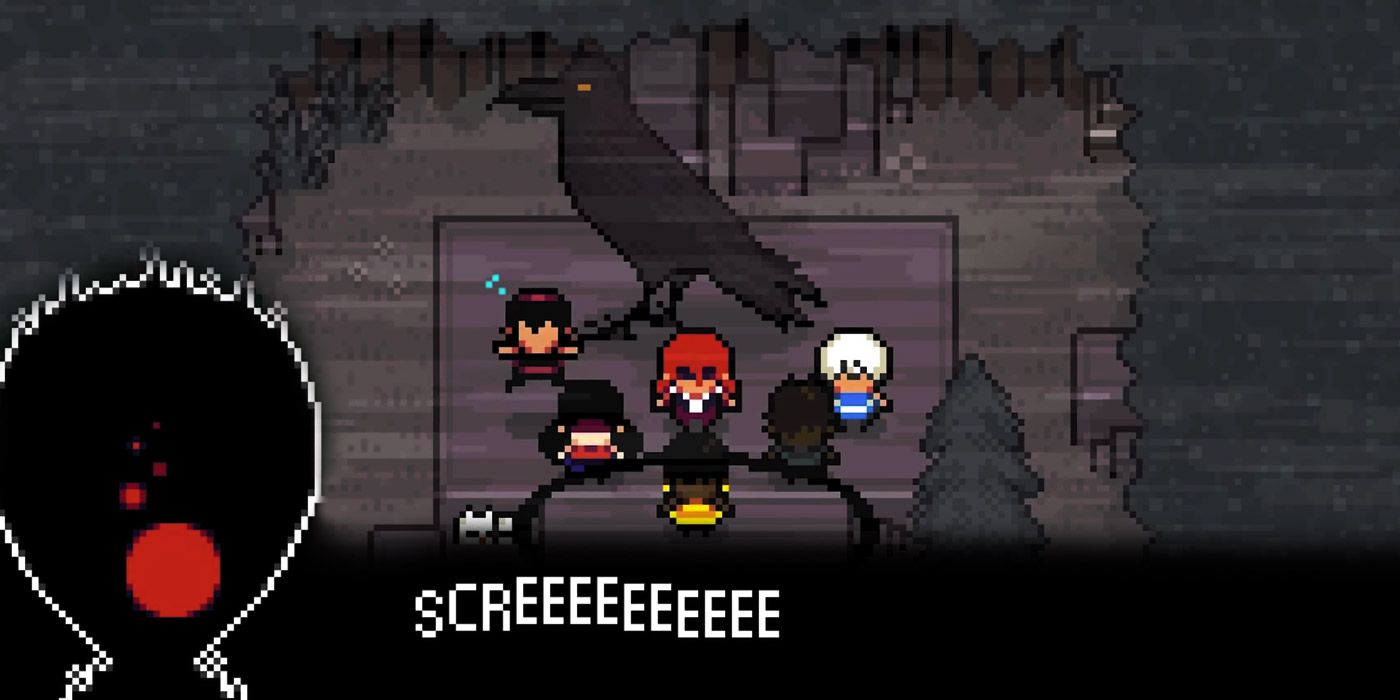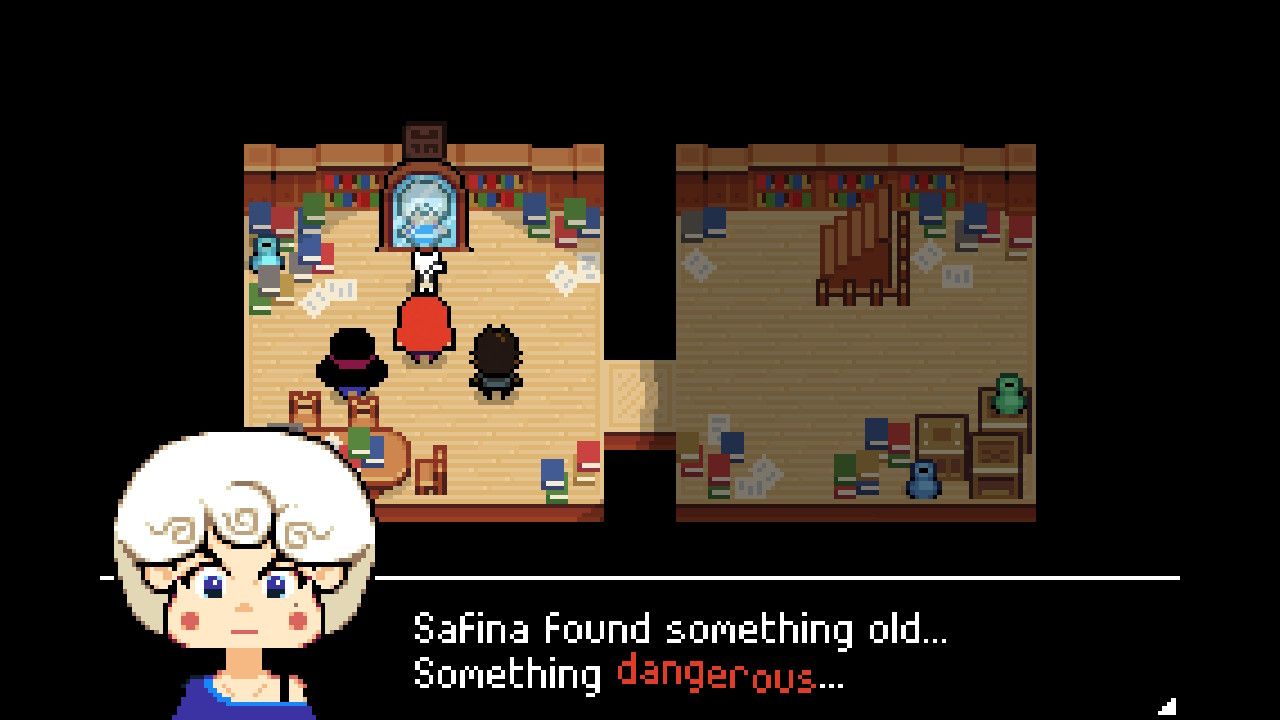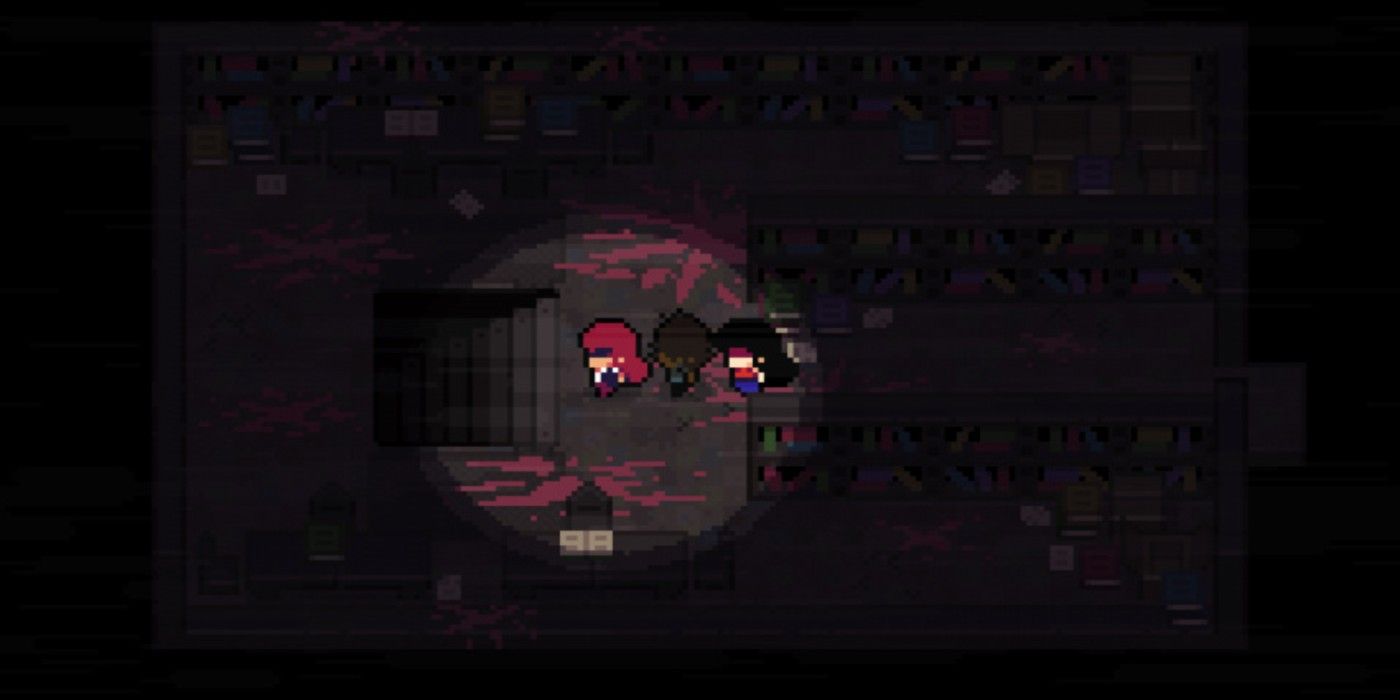Though the game hasn't been out for long, Ikenfell has captured many players hearts as they explore the school of magic and the odd occurrences that originate from its grounds. Together, the main cast of characters overcomes their differences and insecurities to uncover the secrets of the school and save the world of magic. While the game may come across as a similar game to Undertale with more magic and a plethora of LGBTQ+ characters, there is also a dark side to the game as well.
Ikenfell tackles a wide variety of topics throughout the story, delving into subjects such as LGBTQ+ relationships, lies between friends, forgiveness, and reconciliation. However, some of the game's topics go to an even darker place, touching on character struggles that may not sit well with the players who are experiencing these challenges along with the cast of Ikenfell. Despite this, the game's developer created a way to include these themes while minimally affecting those who may be sensitive to these subjects. The following article contains spoilers for Ikenfell.
Mental Health in Ikenfell
While not specifically brought up under this label, mental health is a prominent subject throughout the Indie game. A few specific characters are shown to fight battles — not just using magic to defeat various sentient objects, but also struggling against their own deep rooted emotions. One of the first characters players see this play out with is Gilda, the witch who uses lightning magic. Gilda was barely admitted to Ikenfell due to her weak magic capabilities, which Safrina bullied her for. Gilda had initially internalized that her worth was tied to her abilities as a witch, leading her to duel Mariette several times before realizing that Safrina's thirst for power seemed to hurt everyone around her.
Pertisia is one of the characters that was hurt by Safrina. During one of their adventures, they were both attacked by the Unseen. Pertisia suffered physical and emotional trauma from the creature, leaving her scars on her face and bringing nightmares to her dreams, not really unlike what Ellie and Abby experience in The Last of Us 2. While she does overcome her fear and shame with the help of her friends, the game shows a scene where she has a panic attack upon seeing the Unseen for the first time since her incident.
Headmistress Aeldra is also not immune to the strains of negative mental health. Though she is considered the strongest witch at the school, she is still plagued by the deaths of her friends due to the Dark Fold. When students at the school are put in danger, she feels personally responsible, triggering memories of her battle against the Dark Fold. To deal with this debilitating emotions, Aeldra resorted to self harm, using blood magic to remove these painful feelings and collect them in a cauldron in her reading room. When the cauldron breaks due to the earthquakes, Aeldra's painful emotions overtake her all at once, causing her to hallucinate and kill Bax. Despite the trauma she had experienced, the end of the game shows that Aeldra learned to work through the pain in healthier ways.
How Ikenfell Introduces Triggering Topics
These are difficult topics to bring up, much less in video games. These characters face issues that many players also struggle with, and while it's good to showcase these real human struggles, these depictions may be triggering for people who deal with or have dealt with them in the past. Various other games like Celeste have dealt with the topic of mental health and reconciling with it, but it is still a subject that needs to be approached with great care. However, Ikenfell introduces a mechanic that allows for the character's mental health to be brought up while also respecting players who are sensitive to this material.
Though it isn't automatically turned on, the game has a option to engage content warnings when potentially triggering material is going to appear in an upcoming section of the gameplay or story. Since Ikenfell is a story-driven Indie game, players may not want to take the chance to skip scenes if they don't know whether or not the scene will contain triggering information. Usually, games with content warnings contain much more graphic visuals or extremely unhealthy forms of mental illness like horror games such as Five Night at Freddy's. However, the Ikenfell dev recognizes that events don't have to be overwhelming to be triggering, and it is taking care to point out anything that may make players unnecessarily uncomfortable so that the game can be enjoyed to its fullest potential.
While Indie games have more freedom in their design and customization options, very few have added these labels to their stories. However, plenty of games deal with character death and loss, and though some players have come to expect this from games, it may bring up painful or traumatic memories. Like many games, Ikenfell allows players to skip cutscenes, and many of the content warnings apply to situations within these times in the game. The only time content warnings are shown outside of cutscenes is when the player explores the Stacks and the basement on the way to Aeldra's reading room. Players can't skip the area, but it gives them warning so they can mentally prepare themselves for the area or potentially pass off the game to a friend for the section if needed.
Mental health is becoming a more prevalent topic that has made its way to the gaming world. Some physicians have even designed games to help treat symptoms of ADHD, but even then, many in the gaming industry have generated more talk than action. Games like Ikenfell show the growing recognition of mental health struggles and small yet significant changes that can impact players' experience in meaningful ways. Hopefully, other developers will see this feature and make an effort to be more inclusive of gamers who may be more sensitive to aspects of their stories.
Ikenfell is available now on PC, PS4, Switch, and Xbox One.



